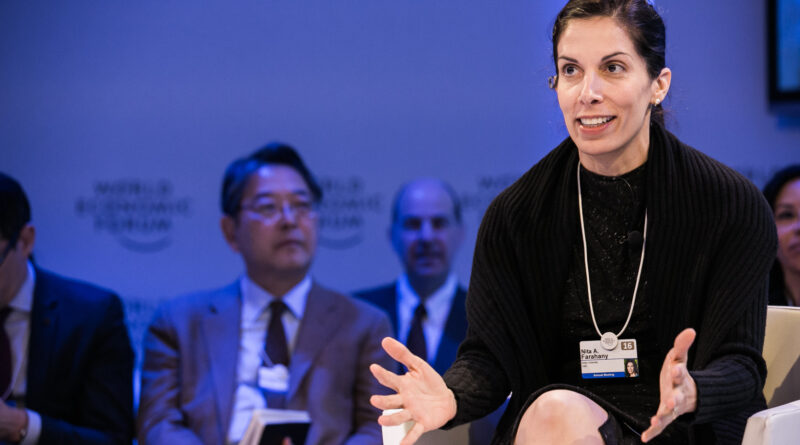WEF promotes ‘Brain Transparency’ that allows bosses to monitor employees’ brainwaves
The 2023 World Economic Forum in Davos played host to a number of eyebrow-raising talks regarding the imposition of advanced technologies on society but none were more concerning than the one given by Duke University professor Nita Farahany.
During a speech titled ‘Ready for Brain Transparency’, the American-Iranian provided a scenario whereby workers would have their brainwaves measured, to monitor anything from productivity and tiredness to love interests and illegal activity.
The session opened with the screening of a short video showing such technology’s capabilities which the panel’s presenter, CEO of the Atlantic Nicholas Thompson, described as an insight into “a wonderful future where we can use brainwaves to fight crime, be more productive and find love”.
While the scenario in the video is fictional, some of the main features outlined during the presentation are actually being deployed, with railway drivers and construction workers among these having their brainwaves monitored.
A dystopian glimpse at the potential future of Hackable Humans: "The government has subpoenaed employee brainwave data from the past year […] They are looking for co-conspirators through synchronized brain activity": #wef23 'Ready for Brain Transparency?' session pic.twitter.com/EtIwjzk4b2
— Tim Hinchliffe (@TimHinchliffe) January 19, 2023
“Artificial intelligence has enabled advances in decoding brain activity in ways we never before thought possible,” Farahany began.
“What you think, what you feel – it’s all just data – data that in large patterns can be decoded using artificial intelligence.”
Fitbit for the brain
Farahany clarified that she was not talking about an implantable device but rather a wearable form of technology, through which emotional behavior can be monitored and tracked.
“We’re not talking about implanted devices of the future; I’m talking about wearable devices that are like Fitbits for your brain,” said Farahany.
“These are headbands, hats that have sensors that can pick up your brainwave activity, ear buds, headphones, tiny tattoos that you can wear behind your ear – we can pick up emotional states – like are you happy or sad or angry.
“We can pick up and decode faces that you’re seeing in your mind – simple shapes, numbers, your PIN number to your bank account.”
Somewhat paradoxically, Farahany serves on scientific and ethics advisory boards for numerous corporations, but only tentatively spoke of the potential dangers of such tech.
The whole speech appeared to be the promotion of a dystopian future and yet it took until the end of her speech to raise any kind of alarm about its negative potential.
“Surveillance of the human brain can be powerful, helpful, useful, transform the workplace, and make our lives better,” she said, before changing her tune.
“It also has a dystopian possibility of being used to exploit and bring to the surface our most secret self.
“It threatens fundamentally what our own self-identity is in some ways, and threatens to become a tool of oppression.”




